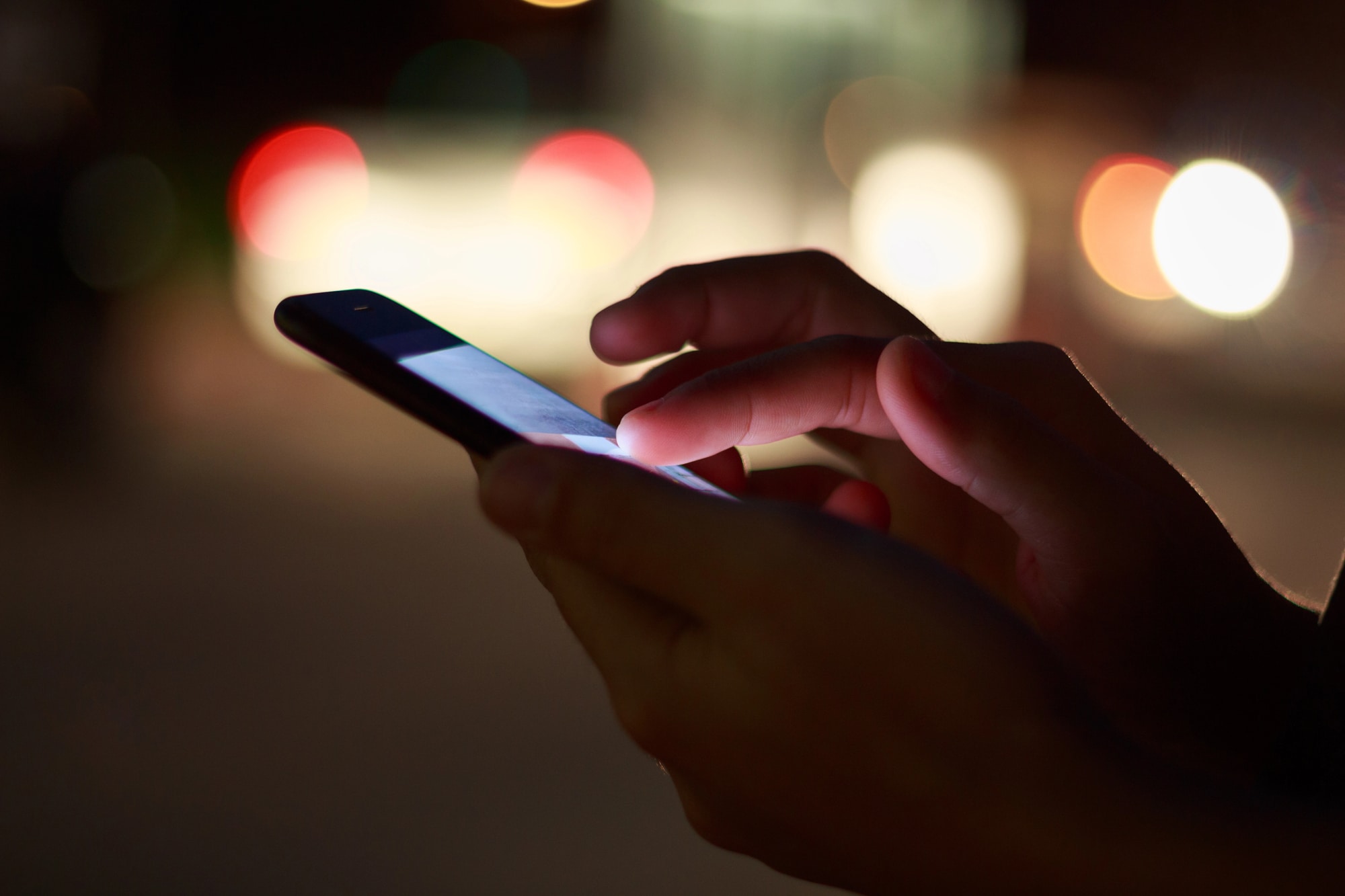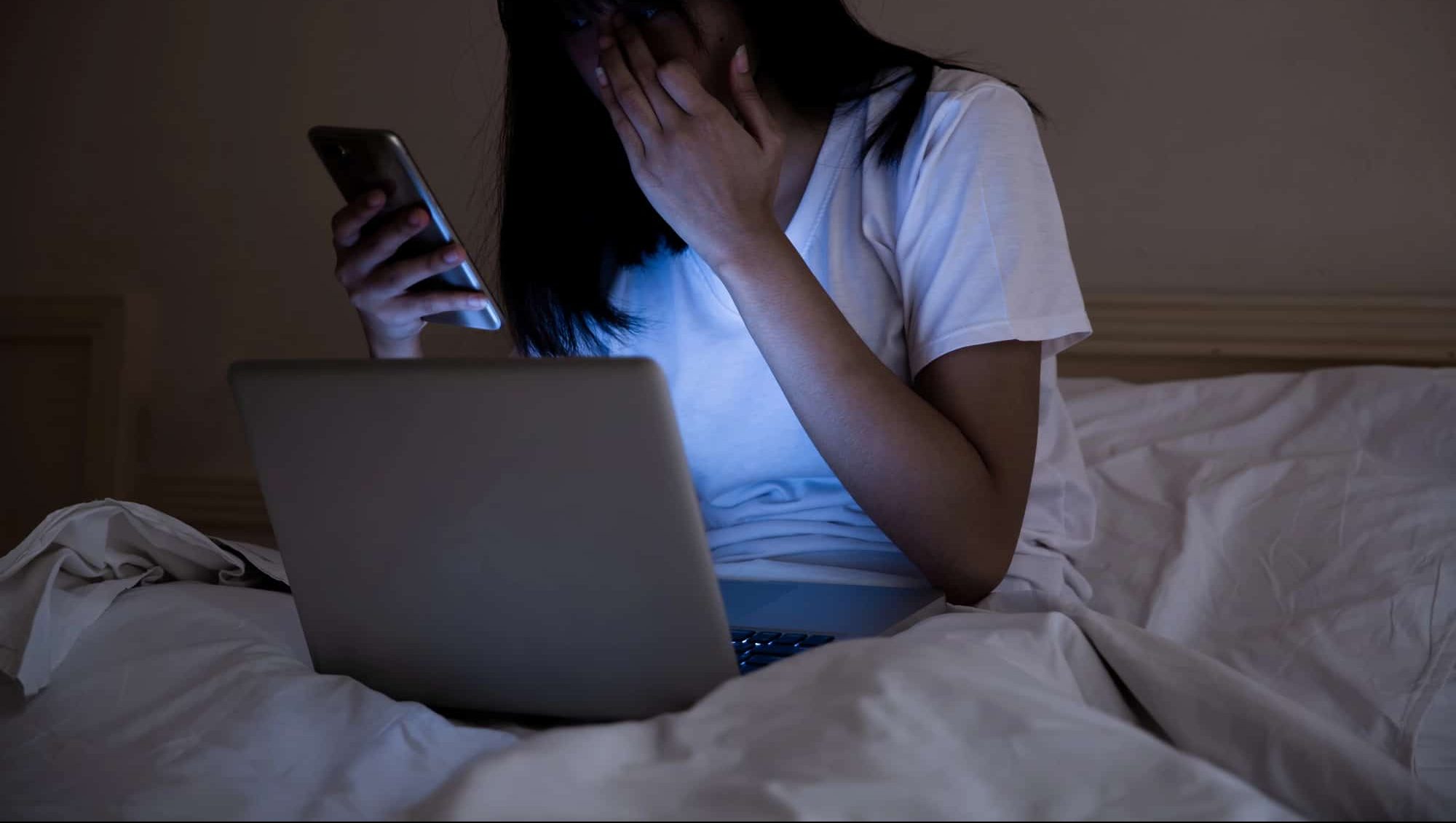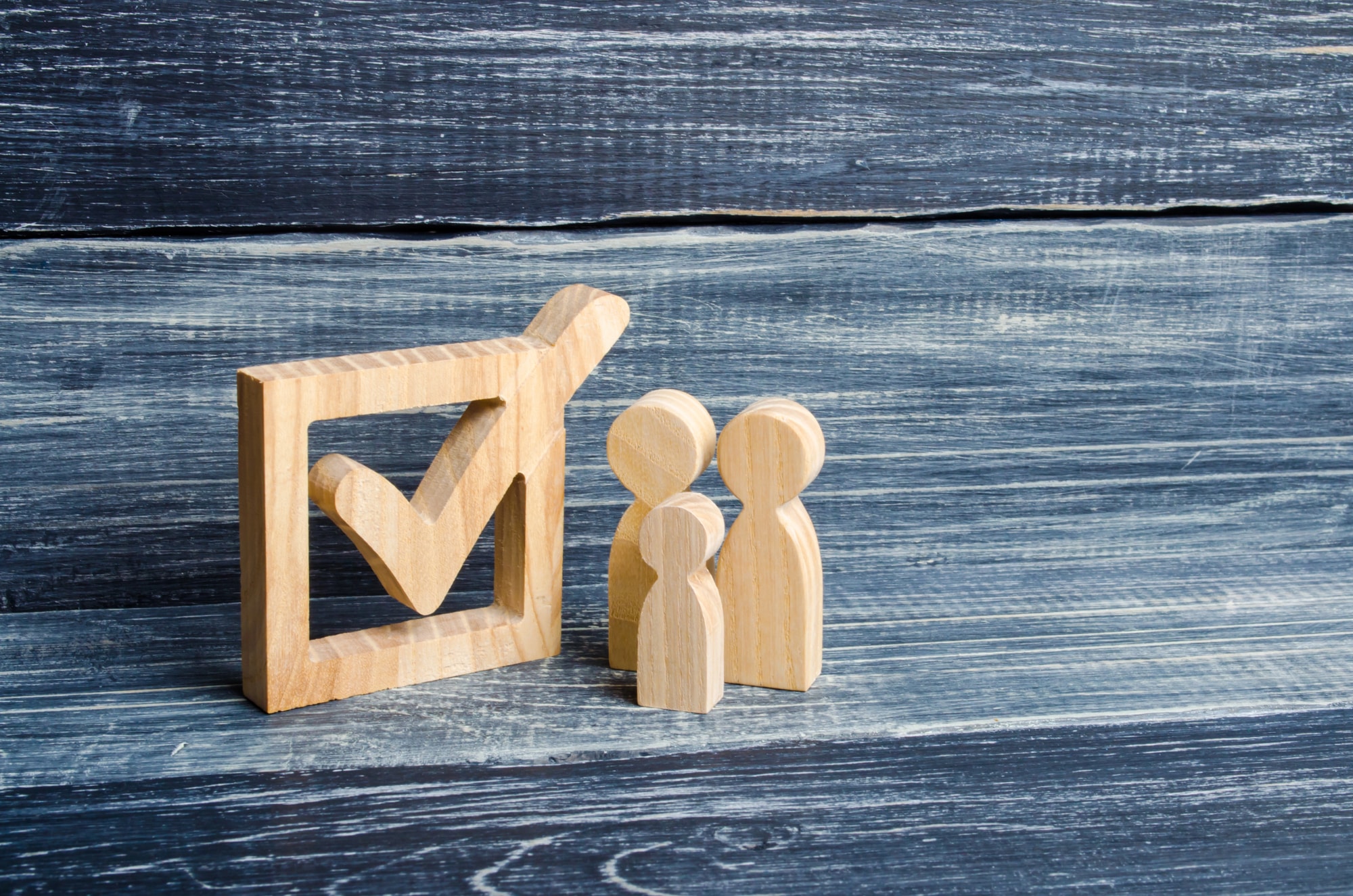When porn becomes both a moral and mental health problem: 3 ways we can help our children
by Gracia Chiang // December 6, 2024, 10:26 pm

Since prevention is better than cure, how can parents of digital natives take a more proactive approach in helping their children to develop healthy mindsets towards sex? Photo from Depositphotos.com.
Imagine your child opening their phone one day to discover that someone has sent them a nude photo of themselves.
No, they have never taken such a picture. What is even more baffling is that they have not been in a situation where an image of that sort could have been captured.
Far-fetched? Not really.
Just recently, a group of female students from the Singapore Sports School found themselves in a similar predicament.
Much to their horror, they realised they had become victims of deepfake pornography, created and shared by other students.
This was one of the cases mentioned at Pornography: The New Drug?, a symposium that was co-organised by Indigo & Co. and Lakeside Family Services on November 22.
How porn can lead to sexual offences
Giving the opening address, Dr Majeed Khader, Chief Psychologist, Ministry of Home Affairs, shared about the concerns stemming from the rise of youth sexual crimes, as well as the challenges posed by emerging technologies such as artificial intelligence (AI).
While youth sexual offending is a complex issue that is influenced by various factors, one of them is the early and repeated exposure to sexually explicit materials.
“There are all these negative, inaccurate scripts that young people may be influenced by.”
Research shows that there are consequences to such exposure in youths.
These include inappropriate and inaccurate information about sex, greater acceptance of objectification of women, aggressive behaviours and sexual violence in relationships.
“It doesn’t always lead to sexual offending… but escalation to sexual offending can happen,” clarified Dr Majeed.
For instance, when youths are frequently exposed to sexual violence in pornography, they may start to form damaging sexual beliefs.
Dr Majeed explained: “For example, youths may think that women saying ‘no’ – is that being shy? Or will they say ‘no’ first then enjoy the sex?
“So there are all these negative, inaccurate scripts that young people may be influenced by.”

Dr Majeed Khader, Chief Psychologist, Ministry of Home Affairs, focused on online sexual harms and youth sexual offending in his presentation. All symposium photos courtesy of Indigo & Co.
The exposure may distort their understanding of boundaries between sex and sexual violence, and may also contribute to youths imitating the behaviours they were watching.
In fact, one such case of a youth who sexually abused his seven-year-old cousin made headlines in 2022.
With advances in technology also come other challenges such as the explosion of AI-generated sexual content or what is known as deepfakes.
Beyond Singapore, authorities around the world are also grappling with the wave of digitally manipulated, highly realistic images and videos of non-consenting individuals who have been portrayed nude or engaging in sexual acts.
Another area of concern is self-generated child sexual abuse materials.
While some of these explicit images can result from a consensual experience (sexting or sharing nudes), others can be coercive (grooming, pressure, manipulation) in nature. If this is done to minors, it would constitute as child sexual abuse.
“It is taking a slightly different dimension, which can be more and more complex as the world evolves,” observed Dr Majeed.

Young people are also being hurt by sexual images of themselves that have been shared without consent. Photo from Depositphotos.com.
Highlighting how even consensually obtained images are now being exploited, he pointed out that non-consensual sharing (image leaks) can lead to sexual extortion and the commercialisation of sex.
Finally, the growing phenomenon of children and youth interacting with AI chatbots is another risk.
With more people turning to chatbots for companionship, some are also using AI personas for sexual interactions.
However, the unpredictability and minimal parental control features in chatbots are troubling. It also remains to be seen how the dependence on such digital relationships could impact a young person’s social development.
Encouraging different segments of the community to come together to help our youths, Dr Majeed urged the symposium’s participants, which included mental health professionals and leaders of religious organisations, to explore solutions from a prevention perspective.
Parenting in a digital age
Prevention is indeed better than cure.
But to be honest, as a mother of two young girls, hearing all of this was quite overwhelming. What should a concerned parent do?
After reflecting on all the discussions at the symposium, let me share three takeaways.
1. Parents need to have more conversations with their children about sex
“If a society is not able to talk about healthy sexuality without intense shame, how are they going to be able to talk about problematic sexual behaviour?”
Dr Eric Dooley, a US-based clinical psychologist who has also been a church planter and pastor in South-east Asia, raised this question at the panel discussion.
It was also sobering to hear during the plenary that many youths are turning to pornography not just for exploration and entertainment.
Pointing to research, Dr Paula Hall from the UK-based Laurel Centre, which specialises in sex and pornography addiction therapy, said that one of the main reasons cited by young people for viewing pornography was education.

Dr Paula Hall shared that youths are seeking information from porn.
This begs the question. Who should be in charge of teaching our youths about sex?
Sharing her observations of what has been happening in the UK, Dr Hall said: “Parents say it’s the school’s responsibility, and the school is saying it’s the parent’s responsibility.”
In Singapore, plans are afoot to develop programmes in schools to reduce the likelihood of inappropriate behaviours and sexual offences among youths.
But even if pornography use does not develop into a legal (crime) or mental health (addiction) problem, what about its moral aspects?
What about how pornography objectifies women, promotes unrealistic (and often selfish) expectations of sexual relationships, and breeds lust?
As parents, we are already instilling many values in our children, such as teaching them about boundaries. Why not build on those conversations?
“It’s far more important to have 100 little talks than one big talk about sexuality.”
Where is our child getting information about sex from? And are we helping them to understand the problems with pornography?
With accessibility, affordability and anonymity fuelling the increase in pornographic content online, being aware of the risks discussed earlier will also help us in guiding our child to develop healthy digital habits.
Urging parents to engage with their children on the birds and the bees, Dr Dooley said: “It’s far more important to have 100 little talks than one big talk about sexuality.”
If you are unsure how to talk to your child about sex, do check out these resources from Focus on the Family Singapore for a start.
Normalising such conversations will also make it easier for your child to open up about any experiences with sexual misconduct or abuse.
2. Be careful that porn doesn’t become a coping mechanism for your child
“Addiction is essentially using alcohol, pornography… to soothe the emotions.”
Speaking about the neuroscience of addiction and how pornography affects the brain, Dr Dooley shared that, as part of his work with clients, he always tries to uncover how the behaviour started.
“We’re developmental beings,” he said. “This came from somewhere, and so there were roots to this earlier in life that had to do with a lack of emotional regulation.”
Using the example of a child that was not soothed by caregivers while growing up, Dr Dooley explained: “With enough repetitions of non-nurturing environments happening, the brain starts to wire that way and say, ‘I can’t trust anybody else. Help isn’t coming. I have to rely on myself.'”
The problem is that a child can only hold out for so long.
When he or she enters the teenage years and gets introduced to an activity such as alcohol or pornography consumption that makes them feel good, they are going to keep wanting to rely on it.
“Hebb’s Law says that neurons that fire together wire together. Neurons that are active at the same time will make connections,” described Dr Dooley.
“Now the brain is saying, ‘When you’re anxious, when you feel guilt, when you have shame, this will fix it.'”

Human beings have a natural reward pathway in the brain. But when that pathway is overused, it stops working properly, explained Dr Eric Dooley.
Over time though, the copious amounts of dopamine (the “feel-good” hormone) that the activity produces overwhelms the brain, and one needs more and more of this “drug” to get pleasure.
While Dr Dooley recognises that not all addiction is trauma-based, he still believes it is important to understand what a person’s childhood was like and if there are any wounds that need to be healed.
“If something hurts, you’re going to keep taking medicine,” he said.
“The addictive behaviour, the compulsive behaviour, whatever it is… is serving a function,” echoed Dr Hall.
If there is trauma involved, she usually focuses on that first when treating a client with sex or pornography addiction.
“If something hurts, you’re going to keep taking medicine.”
I believe there is a lesson here for parents.
Regardless of how time-starved we are, we must remember that our children need us.
How attuned are we to our children’s emotions? Are they turning to unhealthy sources for comfort and companionship?
Even in our busyness, let us keep cultivating the relationship with our young ones.
As one counsellor from Indigo & Co. has previously pointed out, it is only in the context of a relationship where there is trust and mutual respect that parents can set boundaries around the use of technology.
Without such a relationship, rules simply engender rebellion or drive behaviours underground.
3. Create a safe space for your child to share their struggles
“You’re only as sick as your secrets.”
For anyone who is battling an addiction, Dr Dooley expressed that healing can only come when he or she is able to be honest about their struggles and find support.
“Addiction happens in isolation; recovery has to happen in community,” he said. “But people are scared to death of being known.”
From Dr Dooley’s experience, many of his clients have multiple groups of friends, and yet have not told anyone about their addiction.
“At the heart of this stuff is secrecy because of the belief, ‘I’m different from other people in a bad way, and if you knew that, you’d abandon me, you’d reject me. I’d be alone, I wouldn’t be liked, I wouldn’t be loved.'”
Addressing spiritual communities, Dr Dooley said that, ironically, these often have not been truly safe places for addicts.
“Sometimes in our faith communities, we assume that (pornography) is only a spiritual or moral thing,” he noted.
But in the case of an addiction, what may have started as a moral problem has become a biological issue.

When the brain has been damaged by an addiction, an individual lacks the ability to stop the behaviour and to stay stopped. Photo from Depositphotos.com.
“The brain has now changed,” stated Dr Dooley.
So if addicts are only told by well-meaning family or friends “you just need to make a decision to stop it”, “try harder”, or made to feel even more guilt and shame about their behaviour, none of these are helpful.
“The brain’s already been hijacked. Nobody ever sets out to say, ‘I think I’ll just be an addict.'”
Even for those who manage to stop their habit temporarily, it does not mean that their addiction is gone.
“Because addiction is a primary, chronic, progressive disease, it will come back,” he added.
“If the problem is not treated, the symptom will re-appear, and it does. So now the person’s in a dilemma.”
Since the individual wants to avoid feeling shame or scorn from their friends, family or faith community, he or she might avoid telling the truth when asked about their addiction again.
This only compounds the pain that the person is already experiencing because now they feel worse about themselves for lying, explained Dr Dooley.
And because the brain has learnt that pornography can help it feel better, he or she will continue to engage in the same behaviour, making it hard to break out of the addiction cycle.
“Healing comes from the same source, but it’s not always the same avenue or means.”
Pointing out that humans are created with not just a spirit but also a body, Dr Dooley shared that treatment must be holistic.
Instead of relying on spiritual practices alone, treatment often includes individual therapy to deal with underlying emotional issues and group therapy.
For instance, Dr Dooley helps his clients to identify high-risk situations (e.g. specific places or times) and emotional stressors (e.g. anxiety, fear, sadness or boredom) that may make them more susceptible to triggers.
While the damage caused by the addiction is irreversible, treatment can cause new neural pathways to form in the brain, which can take years.
“I believe that healing comes from the same source, but it’s not always the same avenue or means,” he said.
What does this mean for parents?
Going back to the adage that prevention is better than cure, it means that in our relationship with our child, they first need to:
- feel safe enough to open up to us.
- know that they are accepted even if they admit they have a problem.
- experience our love and support instead of judgement and condemnation.
When our child has a problem, they should never believe that they are the problem.
For more serious problems such as addiction, we can also lead them to professional help. No more hiding – only healing.
As followers of Jesus, may we be able to guide our children to walk in the light instead of darkness.
Indigo & Co. is a local non-profit that provides mental health services for clients with sexuality and gender concerns. For more information about the charity, visit its website.
RELATED STORIES:
Tackling porn addiction: What if my spouse or my child is struggling?
“I believed the lie that I could beat it on my own”: Former porn addict now runs support group
Why addiction to pornography is so insidious: A counsellor shares the challenges
We are an independent, non-profit organisation that relies on the generosity of our readers, such as yourself, to continue serving the kingdom. Every dollar donated goes directly back into our editorial coverage.
Would you consider partnering with us in our kingdom work by supporting us financially, either as a one-off donation, or a recurring pledge?
Support Salt&Light


